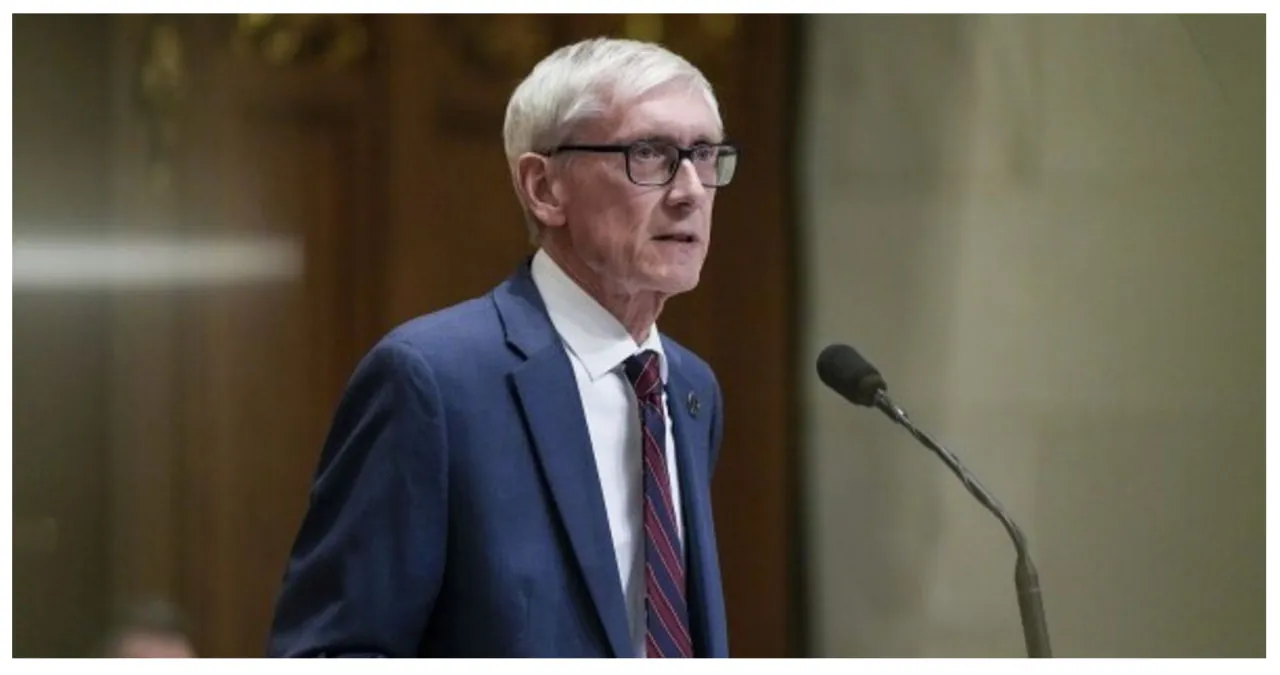Aiexpress – In his State of the State speech on Tuesday, Governor Tony Evers of Wisconsin made a strong commitment to protecting access to abortions. He declared that he would veto any bill aiming to restrict such access, despite ongoing efforts by Republicans to introduce a measure that would allow voters to decide on a potential ban after the 14th week of pregnancy.
The speech coincides with ongoing disputes between Evers, a Democrat, and the Republican-controlled Legislature. Despite some bipartisan achievements, the two parties remain at odds over crucial matters like redistricting, abortion, tax cuts, and election administration during this presidential election year.
During his successful 2022 campaign, Evers, like many Democrats across the country, placed significant emphasis on the issue of abortion rights. On Tuesday, he reiterated this stance, highlighting that his opponent, Republican Tim Michels, had experienced defeat due to his support for banning abortions.
“I want to address the women of Wisconsin directly tonight,” expressed Evers. “I am committed to using my veto power to reject any legislation that undermines your reproductive rights or restricts access to reproductive healthcare in our state. Rest assured, I will ensure that the current level of accessibility remains intact.”
Wisconsin Governor Tony Evers has made an important announcement regarding the state’s BadgerCare Plus Medicaid program. In a move to increase accessibility to contraception, Evers stated that enrollees will now have the convenience of obtaining over-the-counter contraception, including emergency contraception, without the need for a separate prescription. The best part? The medication will be provided at no additional out-of-pocket costs to the individuals. This decision aims to empower individuals by removing barriers and ensuring that they have the ability to make informed choices about their reproductive health.
Governor Evers has once again reiterated his commitment to opposing any attempts to restrict voting in the key state. Throughout his tenure, Evers has consistently vetoed numerous Republican initiatives aimed at altering election administration in Wisconsin.
Governor Evers has announced that he will be unveiling new measures in the upcoming weeks to enhance voter participation. However, he has not provided any specific information about these initiatives.
“We are proceeding with our plan, and we hope that Governor Evers, once he has had the opportunity to review them, will sign them into law,” stated Vos confidently.
In a passionate appeal, Evers urged both Republicans and Democrats to join forces in tackling Wisconsin’s workforce shortages, declaring 2024 as the “Year of the Worker.”
According to Evers, the significance of having maps that accurately represent the population is evident through the public’s widespread support for abortion rights, as shown in statewide and nationwide polls.
Governor Evers expressed his concern about elected officials manipulating district boundaries to secure their positions. He emphasized that this practice allows them to disregard the interests and voices of the majority of Wisconsin residents.
During his speech, Governor Evers emphasized the bipartisan achievements from the previous year, which included reaching an agreement on funding the repairs for the Milwaukee Brewers’ stadium. This agreement ensures that the team will remain in Wisconsin until at least 2050. The governor addressed lawmakers, members of the state Supreme Court, tribal leaders, and other important figures during his speech.
However, there is still a significant amount of partisan rancor that persists and is actually intensifying.
Republicans have made multiple attempts to convince Evers to approve various tax cut plans, but so far, they have been unsuccessful. Additionally, Republicans are getting ready for the Supreme Court to implement new maps that could significantly diminish their majorities. In response, Evers, along with lawmakers and other individuals, has put forward his own map, which is currently under review by the court.
Evers urged both Republicans and Democrats to collaborate in tackling the pressing issues of worker shortages, lack of affordable housing, and insufficient child care in the state.
Evers has emphasized the need to expand paid family leave, a proposal that was turned down by the Legislature in the previous year. He also advocates for increased investment in public education and finding a sustainable solution to address the shortage of child care services. Despite facing opposition from Republicans, Evers managed to ensure the continuity of the Child Care Counts program by allocating $170 million from pandemic relief funds, enabling it to run until June 2025.
In a recent statement, Governor Evers emphasized the urgency for Republicans to take action and make the necessary investments to prevent the collapse of a crucial industry. He highlighted the significance of this industry in maintaining our current levels of workforce participation.
Evers issued a challenge to Republicans, urging them to present alternative plans if they continue to reject his comprehensive workforce proposals, a scenario that has already occurred twice.
“I am ready to collaborate with any legislator, partner, or stakeholder who is willing to engage in meaningful discussions regarding these issues, in order to make the best decisions for Wisconsin,” Evers stated in the provided excerpts. “While we wait for that, my administration will persistently explore all possible options and avenues to tackle our workforce challenges, even without the need for legislative action, just as we have done for the past five years.”
Governor Evers emphasized the importance of releasing the approved $125 million in funding to combat pollution caused by PFAS, commonly known as forever chemicals. He urged Republicans to take action on this issue. Additionally, Evers called for increased investment in mental health services across the state. To address the existing gaps in these services, he announced the establishment of a new interagency council focused on reducing barriers and enhancing access to mental health support.

